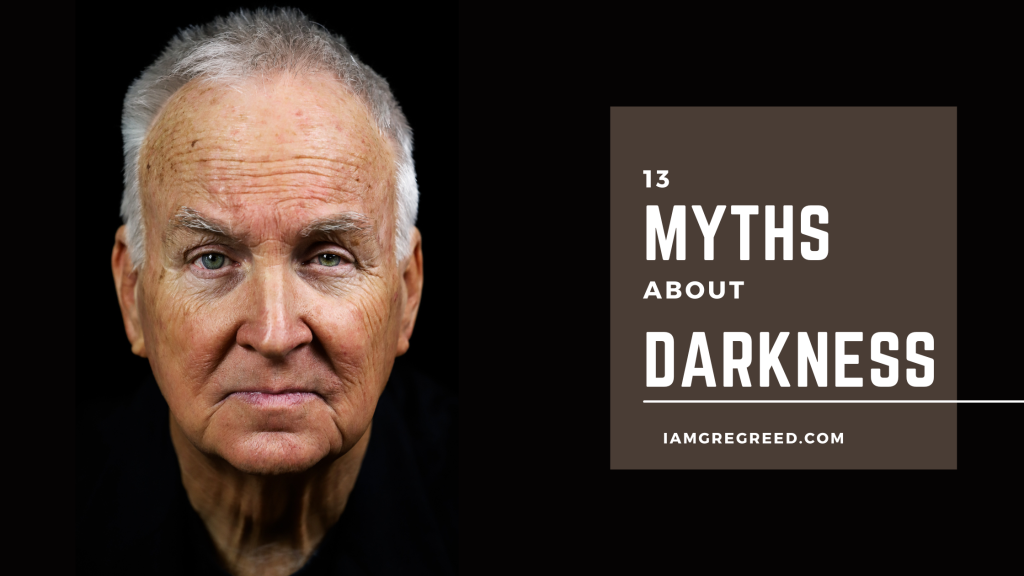Debunking the 13 Myths About Darkness: Shedding Light on the Truth
Darkness has long been shrouded in mystery, superstition, and misconceptions. As the absence of light, it has often been associated with fear and the unknown. Throughout history, various myths and misconceptions about darkness have emerged, perpetuating a sense of unease and misunderstanding. In this comprehensive article, we will debunk 13 common myths about darkness, shedding light on the truth behind these misconceptions.
Myth 1: Darkness Is Inherently Evil
One prevalent myth about darkness is that it is inherently evil or malevolent. This misconception likely stems from the fear of the unknown and the association of darkness with nighttime, when our senses are less acute. In reality, darkness is a natural phenomenon, neither good nor evil. It is simply the absence of light. Many aspects of the natural world rely on darkness for their existence, such as nocturnal animals and the regenerative processes that occur during the night.
Myth 2: Darkness Is Always Scary
Darkness is often portrayed as frightening in literature, movies, and folklore. While darkness can create an eerie atmosphere, it is not inherently scary. Fear of the dark, known as nyctophobia, is a common human fear but is rooted in psychological factors rather than any inherent malevolence of darkness itself. With understanding and familiarity, darkness can become a source of solace and tranquility.
Myth 3: Darkness Is Always Silent
Another myth is that darkness is synonymous with silence. In reality, many sounds come alive at night. From the soothing chirping of crickets to the distant howling of wolves, the night is often filled with its own symphony of sounds. Furthermore, silence itself can be peaceful and comforting, not necessarily foreboding.
Myth 4: Darkness Equals Danger
Darkness is often associated with danger, but it is not inherently perilous. While some risks may be more pronounced in the dark, such as tripping over obstacles, the darkness itself is not a threat. It is our perception and the specific circumstances that determine whether darkness poses a danger.
Myth 5: Darkness Is Uniformly Black
Darkness is not uniformly black. Its appearance can vary greatly depending on factors such as ambient light, weather conditions, and location. In rural areas far from city lights, darkness can reveal a mesmerizing tapestry of stars, while urban darkness may be tinged with artificial light pollution.
Myth 6: Darkness Hides All
Darkness is often thought to conceal everything within it, but this is not entirely accurate. Many objects and living creatures have adaptations that make them visible or even thrive in the dark. Nocturnal animals, for instance, have specialized senses to navigate and hunt in the darkness. Darkness can hide some things while revealing others.
Myth 7: Darkness Is Unproductive
Contrary to the myth that darkness is unproductive, it is a crucial part of natural cycles and ecosystems. Many plants and animals rely on darkness to carry out essential processes, such as pollination, regeneration, and hunting. Darkness is a productive and essential component of the natural world.
Myth 8: Darkness Is Always Depressing
Darkness is often associated with feelings of sadness or depression. Seasonal Affective Disorder (SAD) is a well-known condition that affects some individuals during the darker months. However, many people find solace, inspiration, and creativity in darkness. The tranquility of the night can be a source of introspection and comfort.
Myth 9: Darkness Equals Loneliness
The idea that darkness equates to loneliness is a myth. In fact, many people find solace and companionship in the darkness. Nighttime can be a time of bonding with loved ones, stargazing with friends, or sharing stories around a campfire. Darkness can foster a sense of connection rather than isolation.
Myth 10: Darkness Equals Ignorance
The notion that darkness represents ignorance or lack of knowledge is a metaphorical myth. While the phrase “in the dark” is often used to describe being uninformed, darkness itself does not symbolize ignorance. In fact, darkness can be a time for reflection, introspection, and gaining insight.
Myth 11: Darkness Is Unchanging
Darkness is not a static state but a dynamic one that evolves over time. The night sky, for example, offers a constantly changing tableau of celestial bodies and phenomena. Darkness can be a canvas for artistic expression and exploration.
Myth 12: Darkness Is an Enemy of Progress
The myth that darkness impedes progress is rooted in the belief that artificial light is necessary for productivity and advancement. While light has certainly played a pivotal role in human progress, darkness also has its place. Many scientific discoveries, creative insights, and moments of clarity have occurred during quiet, dark nights.
Myth 13: Darkness Is a Barrier
The final myth to debunk is that darkness is an insurmountable barrier. While darkness can pose challenges, it is not an impenetrable obstacle. Humans have developed various technologies and adaptations to navigate and thrive in the dark, from night vision goggles to bioluminescent organisms that light up the depths of the ocean.
In conclusion, darkness is a complex and multifaceted aspect of our world that has been clouded by myths and misconceptions. By shedding light on these misunderstandings, we can gain a deeper appreciation for darkness as a natural and essential part of our lives. Darkness offers moments of serenity, reflection, and connection, and it is not to be feared but understood and embraced.

